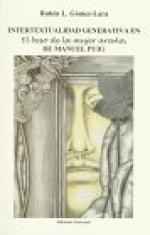|
This section contains 954 words (approx. 4 pages at 300 words per page) |

|
[Recent Latin American fiction is] constantly in search of new stances, angles, tones, twists, and modes of narrative, but it asks these discoveries to lead it back to a shared world, not off into a region of pure play or dream.
The work of Manuel Puig is a good example, since in his four novels he evokes or simulates, among other things, soap operas, school essays, sentimental letters, police reports, the novels of Robbe-Grillet, newspaper items, film scripts, tapes of telephone conversations, the later chapters of Ulysses, an application form for an art competition, a psychiatrist's notes, a report on an autopsy, and the testimony a certain character would have given if he were asked—to say nothing of the "principal imaginary actions" of another character. All this may sound like a set of gags, or even like naturalism gone wild, yet the point is neither wit nor...
|
This section contains 954 words (approx. 4 pages at 300 words per page) |

|


